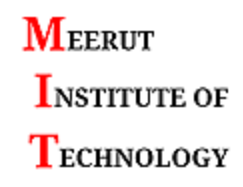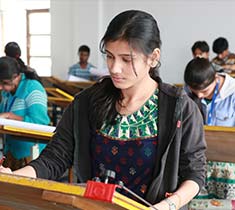About Course
The Department of Computer Science and Engineering at MIT was established in the year 2007. The Department caters all the needs of B.Tech. Course and provides conducive & healthy environment for learning which helps the budding professional to enhance their computing skills. The focus is to provide a platform for cutting edge technology and for imparting state of the art education. Thus, our maturing software professionals get crucial training in all the emerging fields of Computer Science and Engineering.
The Department emphasizes on three aspects of today’s challenging Computer Science & Engineering Scenario, Innovative Thinking, Practical/Real world Implementation and Collaborative Approach. All these aspects help a Computer Engineering Professional to grasp and use his/her potential up to the mark and sustain him in the cut throat competitive world. Apart from course curriculum department empowers students to have excellence in technical education and research to serve as a valuable resource for industry and society. Department has collaborated with industry (companies including IBM, Wipro, Adobe, TCS, etc.) to enhance hands-on skills. Department offers industrial visits and Personality development courses to fulfill the gap between industry and academics. Department is empowering students by providing latest technologies used in Industry like IBM ,DB-2,Open GL, Android Studio, embedding programming etc. to bridge the gap between Industry and academia.
Career in the Engineering Discipline of CSE
Some of the traditional and modern emerging fields of Computer Science and Engineering are System Software Designing, Application Software Designing, Network Security, Image Processing, Artificial Intelligence, Web Technologies, Internet of Things, Data Analytics, Networking, Cloud Computing, Bioinformatics, SAP, Big Data, etc.
Vision
To become a prominent department of computer science & Engineering producing competent professionals with research & innovation skills, including moral values & societal Concerns.
Mission
-
Provide learning ambience to generate innovative & problem solving skills with professionalism.
-
Create facilities & expertise in advanced computer technology thereby promote research.
-
Enhance industry institute interaction programme to get acquainted with corporate culture.
-
Induce ethical values & sprit of social commitment.
Program Educational Objectives
The Computer Science & Engineering Department produces graduates with a strong foundation of technical
knowledge and prepares them with problem solving, teamwork, and good communication skills that will
raise their personality and professional career.
The specific program educational objectives are as follows:
- To provide our graduates a concrete understanding of fundamental concept of computer science
and engineering by providing sustainable quality education to meet industry requirement.
- To provide our graduates with an education assuring an adequate foundation in science and
mathematics relevant to computing and also to pursue higher studies.
- To provide technical knowledge to enhance the analysis and design skills for implementing,
formulating and solving multidisciplinary computing problems.
- To produce graduates with adequate cognitive and communication skills, who can function
effectively as computer science professionals to fulfill the requirements needed for skilled human resources.
- To prepare graduates with awareness of life-long learning with an understanding of their
ethical and social responsibility to become responsible citizen.
Program outcomes
| Outcome (a): |
An ability to apply knowledge of mathematics, science, and engineering. |
| Outcome (b): |
An ability to design and conduct experiments, as well as to analyze and interpret data. |
| Outcome (c): |
An ability to design a system, component, or process to meet desired needs within realistic constraints such
as economic, environmental, social, political, ethical, health
and safety, manufacturability, and sustainability |
| Outcome (d): |
An ability to function on multidisciplinary teams. |
| Outcome (e): |
An ability to identify, formulates, and solves engineering problems. |
| Outcome (f): |
An understanding of professional and ethical responsibility. |
| Outcome (g): |
An ability to communicate effectively. |
| Outcome (h): |
The broad education necessary to understand the impact of engineering solutions in a global,
economic, environmental, and societal context. |
| Outcome (i): |
A recognition of the need for, and an ability to engage in life-long learning. |
| Outcome (j): |
A knowledge of contemporary issues. |
| Outcome (k): |
An ability to use the techniques, skills, and modern engineering tools necessary for engineering practice. |
| Outcome (l): |
An ability to acquire concepts to integrate computer science & engineering into other fields. |
| Outcome (m): |
An ability to use all phases of software design development cycle and to have firm understanding of hardware technologies. |
| Outcome (m): |
An ability to integrate knowledge and experience in a real life situation with a project derived from
or inspired by industry with an understanding and appreciations
of Data Structures, Algorithms and Advanced Programming. |
Program Educational Objectives
The Computer Science & Engineering Department produces graduates with a strong foundation of technical knowledge and prepares them with problem solving, teamwork, and good communication skills that will raise their personality and professional career. The specific program educational objectives are as follows:
-
To provide our graduates a concrete understanding of fundamental concept of computer science and engineering by providing sustainable quality education to meet industry requirement.
-
To provide our graduates with an education assuring an adequate foundation in science and mathematics relevant to computing and also to pursue higher studies.
-
To provide technical knowledge to enhance the analysis and design skills for implementing, formulating and solving multidisciplinary computing problems.
-
To produce graduates with adequate cognitive and communication skills, who can function effectively as computer science professionals to fulfill the requirements needed for skilled human resources.
-
To prepare graduates with awareness of life-long learning with an understanding of their ethical and social responsibility to become responsible citizen.
Program outcomes
|
Outcome (a): |
An ability to apply knowledge of mathematics, science, and engineering. |
|
Outcome (b): |
An ability to design and conduct experiments, as well as to analyze and interpret data. |
|
Outcome (c): |
An ability to design a system, component, or process to meet desired needs within realistic constraints such as economic, environmental, social, political, ethical, health and safety, manufacturability, and sustainability |
|
Outcome (d): |
An ability to function on multidisciplinary teams. |
|
Outcome (e): |
An ability to identify, formulates, and solves engineering problems. |
|
Outcome (f): |
An understanding of professional and ethical responsibility. |
|
Outcome (g): |
An ability to communicate effectively. |
|
Outcome (h): |
The broad education necessary to understand the impact of engineering solutions in a global, economic, environmental, and societal context. |
|
Outcome (i): |
A recognition of the need for, and an ability to engage in life-long learning. |
|
Outcome (j): |
A knowledge of contemporary issues. |
|
Outcome (k): |
An ability to use the techniques, skills, and modern engineering tools necessary for engineering practice. |
|
Outcome (l): |
An ability to acquire concepts to integrate computer science & engineering into other fields. |
|
Outcome (m): |
An ability to use all phases of software design development cycle and to have firm understanding of hardware technologies. |
|
Outcome (m): |
An ability to integrate knowledge and experience in a real life situation with a project derived from or inspired by industry with an understanding and appreciations of Data Structures, Algorithms and Advanced Programming. |
Laboratories
Data Structure Lab
Objective: The objective of the Lab is to make students competent professionals by introducing abstract concepts and show how those concepts are useful in problem solving and then show how the abstraction can be made concrete by using a programming language. It enables the students to learn the technique of problem solving and then writing efficient program for those problem. Equal emphasis is placed on both the abstract and concrete version of a concept so that the students learn about concepts itself and its implementation and application.
Outcome: If you complete the lab successfully, you can be expected to have the following competencies:
-
Using asymptotic notation and solving hard recurrences.
-
A clear understanding of both theory and implementation details underlying some basic data structures and data abstractions such as lists, stacks, queues, priority queues, hash tables, search trees (including balanced ones) and graphs.
-
The ability to write correct programs using these and related data structures.
Operating System Lab
Objective: The objective of the course is to provide basic knowledge of computer operating system structures and functioning.
Outcome:
-
Upon completing the course the student is capable of explaining the basic structure and functioning of operating system.
-
Student is able to point the problems related to process management and synchronization as well as is able to apply learned methods to solve basic problems.
-
Student is capable of explaining the cause and effect related to deadlocks and is able to analyze them related to common circumstances in operating systems.
-
The student is able to explain the basics of memory management, the use of virtual memory in modern operating systems as well as the structure of the most common file-systems.
Python Language Programming Lab
Objective: Python Programming Lab is intended for B. Tech (CSE) IVth Semester students.
-
To understand why Python is a useful scripting language for developers.
-
To learn how to design and program Python applications.
-
To learn how to use lists, tuples, and dictionaries in Python programs.
-
To learn how to identify Python object types.
-
To learn how to use indexing and slicing to access data in Python programs.
-
To define the structure and components of a Python program.
-
To learn how to write loops and decision statements in Python.
-
To learn how to write functions and pass arguments in Python.
-
To learn how to build and package Python modules for reusability.
-
To learn how to read and write files in Python.
-
To learn how to design object?oriented programs with Python classes.
-
To learn how to use class inheritance in Python for reusability.
-
To learn how to use exception handling in Python applications for error handling
-
To learn to design GUI Applications in Python.
Outcome: On successful completion of Python Language Programming Lab students will be able to
-
Describe the Numbers, Math functions, Strings, List, Tuples and Dictionaries in Python
-
Express different Decision Making statements and Functions
-
Interpret Object oriented programming in Python
-
Understand and summarize different File handling operations
-
Explain how to design GUI Applications in Python and evaluate different database operations
SOFTWARE ENGINEERING LAB
Objective: Students will gain the ability to learn Unified Modeling Language (UML) using “Umbrello” Tool. The mission of the Software Engineering lab is to provide a quality software engineering education with significant hands-on and laboratory experience that will enable students to practice their profession with proficiency and integrity.
Outcome:The following are the Software Engineering Student Outcomes describing what students are expected to know or be able to do by the time of graduation from the program:
-
Foundation: Students shall have strong foundation in science, mathematics, and engineering, and can apply this fundamental knowledge to software engineering tasks.
-
Development: Students can effectively apply software engineering practice over the entire system lifecycle. This includes requirements engineering, analysis, prototyping, design, implementation, testing, maintenance activities and management of risks involved in software and embedded systems.
-
Process: Students know classical and evolving software engineering methods, can select and tailor appropriate methods for projects, and can apply them as both team members and managers to achieve project goals.
-
Professionalism: Students are knowledgeable of the ethics, professionalism, and cultural diversity in the work environment.
-
Quality: Students can apply basic software quality assurance practices to ensure that software designs, development, and maintenance meet or exceed applicable standards.
-
Presentation: Students have effective written and oral communication skills. Graduates can prepare and publish the necessary documents required throughout the project lifecycle. Students can effectively contribute to project discussions, presentations, and reviews.
-
Growth: Students understand the need for lifelong learning and can readily adapt to new software engineering environments.
COMPUTER NETWORKS LAB
Objective:
-
To make students aware about various types of networking devices such as routers, hub and switches.
-
To explain the meaning of basic networking commands.
-
To explain the working of different protocols used in networking and calculate efficiency of some well-known protocols.
-
Gain core knowledge of IP addressing.
-
To understand basic working of client server approach and socket addressing.
Outcome:
-
Identify and describe the functions of common networking devices.
-
Know the basic commands used in computer networks.
-
Know the data link layer protocols used in framing.
-
Analyze how to assign IP address to a given network.
-
Know how the request is transmitted from client to server and the response in the backward direction.
COMPILER DESIGN LAB
Objective:
-
To provide an Understanding of the language and tools
-
To provide an understanding of the design of parsers.
Outcome: The students shall acquire the generic skills to design and implement a compiler along with analysis of practical aspects.
PRINCIPLE OF PROGRAMMING LANGUAGE LAB
Objective:
-
Techniques for solving problems
-
A programmer requires creativity in order to solve problems and precision in the construction and manipulation of programming language code
-
A programmer builds up a repertoire of techniques for solving problems, usually adapting and reusing techniques as each new problem is encountered.
DISTRIBUTED SYSTEM LAB
Objective:
-
To simulate the functioning of Lamport’s Logical Clock in ‘C’.
-
To simulate the Distributed Mutual Exclusion in ‘C’.
-
To implement a Distributed Chat Server using TCP Sockets in ‘C’.
-
To implement RPC mechanism for a file transfer across a network in ‘C’
-
To implement ‘Java RMI’ mechanism for accessing methods of remote systems.
-
To simulate Balanced Sliding Window Protocol in ‘C’.
-
To implement CORBA mechanism by using ‘C++’ program at one end and ‘Java program on the other.
Outcome: Upon successful completion of this course learner should be able to:
-
Demonstrate the functioning of Lamport’s Logical Clock.
-
Understand the Distributed mutual exclusion
-
Develop a Distributed Chat Server.
-
Integrate RPC mechanism for a file transfer across a network
-
Apply ‘Java RMI’ mechanism for accessing methods of remote systems.
-
Interpret Balanced Sliding Window Protocol.
-
Apply CORBA mechanism in different context.
FACULTY ACIEVEMENTS
-
Prateek Vashishtha was awarded with IIT Bombay Task Based Training-2015 cash prize by eLSI, IIT Bombay.
-
Amol Sharma was awarded for best ‘IT application for academic institute’ by RICOH awards
STUDENTS ACIEVEMENTS
-
Mr. Priyank Tiwari and his team got selected in "Smart India Hackathon, 2018" and got & 7th rank along with IIT certified certificate among 45 teams.
-
Mr. Aveek and his team is selected for” Smart India Hackathon, 2018".
-
Mr. Priyank Tiwari and his team is selected for” Smart India Hackathon , 2018".
-
Mohd. Zubair and his team is selected for” Smart India Hackathon , 2018".
-
Sagrika Tyagi and Varsha Chaodhary are runner up in technical poster presentation competition in Dr. A.P.J Abdul Kalam Technical University(Zonal Level).
-
Mohit Chauhan, Monti Chauhan and Shadan Gazi are second runner up in Bridge Kriti competition in Dr. A.P.J Abdul Kalam Technical University(Zonal Level).
-
Mr. Shubham Sarang is runner up in JAM competition in Dr. A.P.J Abdul Kalam Technical University(Zonal Level).
-
Shreya Arora is runner up in Debate competition(English) in Dr. A.P.J Abdul Kalam Technical University(Zonal Level).
-
Sagrika Tyagi is second runner up in Debate competition(Hindi) in Dr. A.P.J Abdul Kalam Technical University(Zonal Level).
-
MIT students got first runner up prize in Inter college debate competition organized by GAIL Gas Limited.
-
Mr. Ayush Maheshwari cleared IMAD Examination organized by Hasura in collaboration with IIT Hyderabad.
-
Mr. Priyank Tiwari secured 3rd position in inter college (Vidya college of Engineering) TECHWIZ'17 in tech quiz competition.
-
Mr. Prashant Chauhan (CSE-2nd Year) got position in top 2% certified candidates in NPTEL Introduction to programming in C course with 88%.
-
Mr. Saurabh Nagar (CSE-2nd Year) got position in top 5% certified candidates in NPTEL Introduction to Operating System course with78%.
-
Mr. Ayush Maheshwari is certified with "ANDROID APP DEVELOPMENT WORKSHOP " held in IIT DELHI.
-
Mr. Ayush Maheshwari is certified with "ETHICAL HACKING" Workshop organized by azure skynet in collaboration with IIT HYDERABAD.
-
Mr. Aveek and his team is selected for grand finale of “Smart India Hackathon 2017”.
-
Shivang Kumar and his team won MPL 2017 football intra level college competition.
STUDENTS QUALIFIED IN GATE EXAM
-
A. GATE Scorer in 2012:
-
Prateek Aggarwal
-
Duli Chand
-
Satendra Kumar
-
B. GATE Scorer in 2015:
-
Tushar Gupta
-
Tanya Singhal
-
Yuvraj Sourav
-
C. GATE Scorer in 2016
-
Ashwani Kumar Chauhan
-
Ankur Sharma
-
Tarun Chauhan
-
D. GATE Scorer in 2017
-
Goyal Aveek Amit
-
Utsav Anand
Events
-
TECHNOZION-2011
-
TECHSPARDHA-2012
-
TECHSPARDHA-2014
-
CODEZILLA-2015
-
CODEZILLA-2016
SEMINARS, CONFERENCES AND WORKSHOPS HELD IN THE DEPARTMENT
-
PDP, FDP (In House)
-
WIPRO UTLP MTLC workshop
OTHER ACTIVITIES CONDUCTED BY DEPARTMENT
For the student’s, department conducts training and exams on C language, JAVA, HTML,CSS Java Script, Python, Android Studio, PHP.
Research
|
Research Paper Published in International Journal |
View Details |
|
Research Paper Published in National Conference |
View Details |
|
Research Paper Published in International Conference |
View Details |
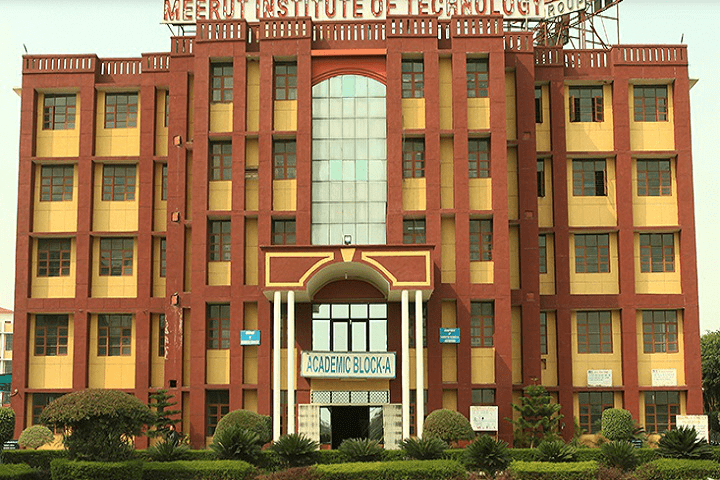
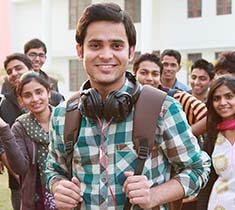
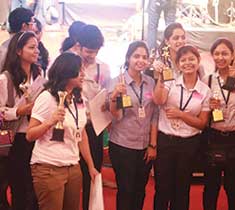
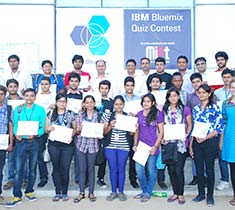
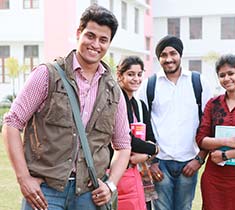


.png)



